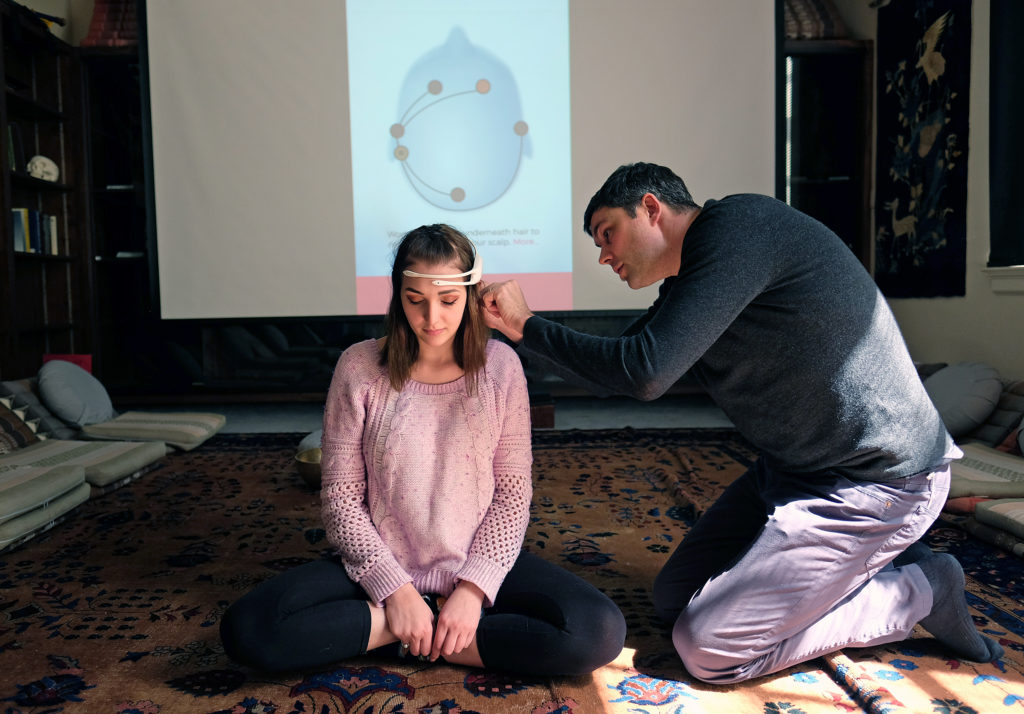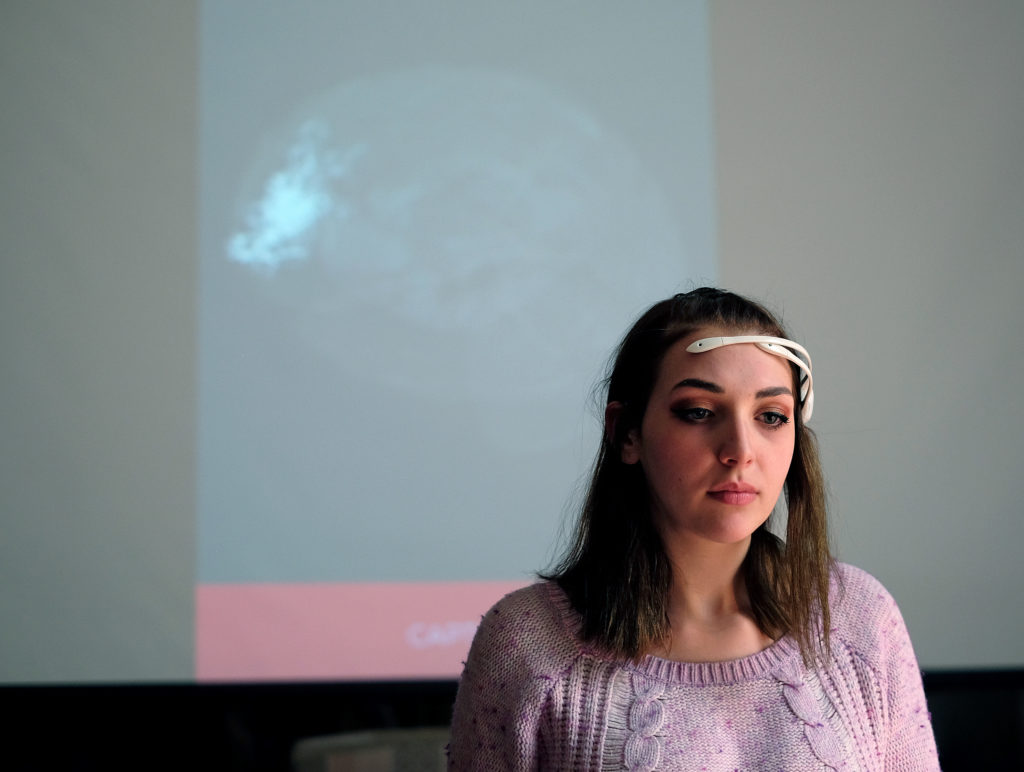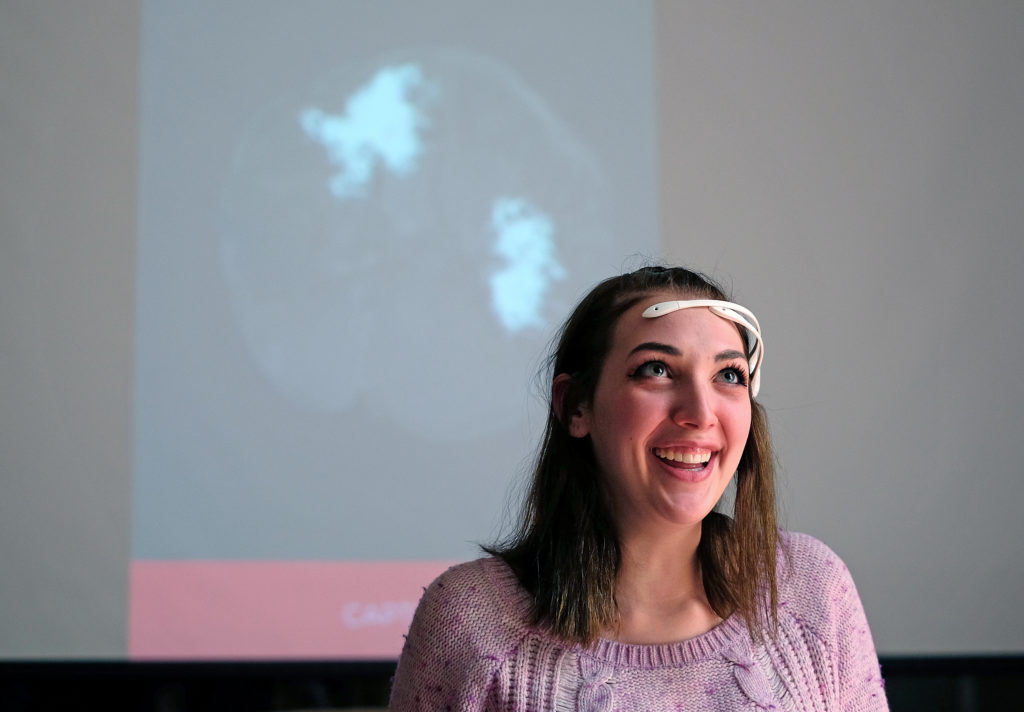Perched impossibly high in the sky over Bordeaux, UMW senior Emily Ferguson releases her swing. She braces for that quick stomach flip as she swoops down toward the vibrant French port city, feels the wind rush through her hair, and takes it all in.



“I felt like I’d had one of the most incredible experiences of my life,” she said of the lucid dream she induced and directed, “and I was just sleeping.”
When she graduates in May, Ferguson will be among the first to complete UMW’s Contemplative Studies program, one of the few undergrad curricula of its type in the world. Melding ancient meditative techniques with cutting edge research in the cognitive sciences, the minor promotes mindfulness, self-exploration and critical inquiry. It teaches students to find their breath and relax in the present. And, with implications for reducing anxiety and increasing concentration, it can help them harness their dreams in more than one way.
For Ferguson, a biology major and neuroscience minor on the pre-medical track, that means grad school and a career in academia or research. Contemplative studies brought the pieces together. “Biology, philosophy, sociology … ” she said. “It merged all those things and gave me a real sense of clarity.”
The 18-credit curriculum also offers electives in anthropology, art history, geography, psychology and religion, among others. Students in the core courses must meditate daily, working their way up from five- to 45-minute sessions. Sensory headbands that record brain waves help monitor their progress.
Kirsten George, a senior psychology major with a second minor in linguistics, is researching mindful eating, a potential treatment for disorders like anorexia and obesity. At least once a day, she grabs her favorite “Betty Boop” pillow, cracks open the window in her Alvey Hall room and sits down to meditate.
“You need a lot of self-discipline,” said George, whose coursework has helped her reduce anxiety and stress. “You have to look at it as a positive thing.”
UMW’s Leidecker Center for Asian Studies opened in 1998, thanks to the late Professor of Philosophy Kurt Leidecker, a Buddhism specialist who left his estate to Mary Washington. Rich with plump pillows, Buddha statues and Tibetan texts, it’s the perfect place for students to focus their minds and relax.
When Assistant Professor of Religion Dan Hirshberg came to campus in 2014, he brought his own expertise in Buddhism and meditation. After spending a semester abroad in India and Nepal as an undergrad, he said, “It was all over for me. I never wanted to do anything else.” Hirshberg earned a master’s degree in Indo-Tibetan Buddhism from Naropa University, a leader in contemplative education, and a Ph.D. in Tibetan studies from Harvard University.
Along with Professors of Classics, Philosophy and Religion David Ambuel and Angela Pitts, who began offering the original meditation course in 2012, he launched UMW’s Contemplative Studies program in fall 2016.
“I think it’s a really important mindset,” George said. “I feel lucky to have experienced this at my school.”